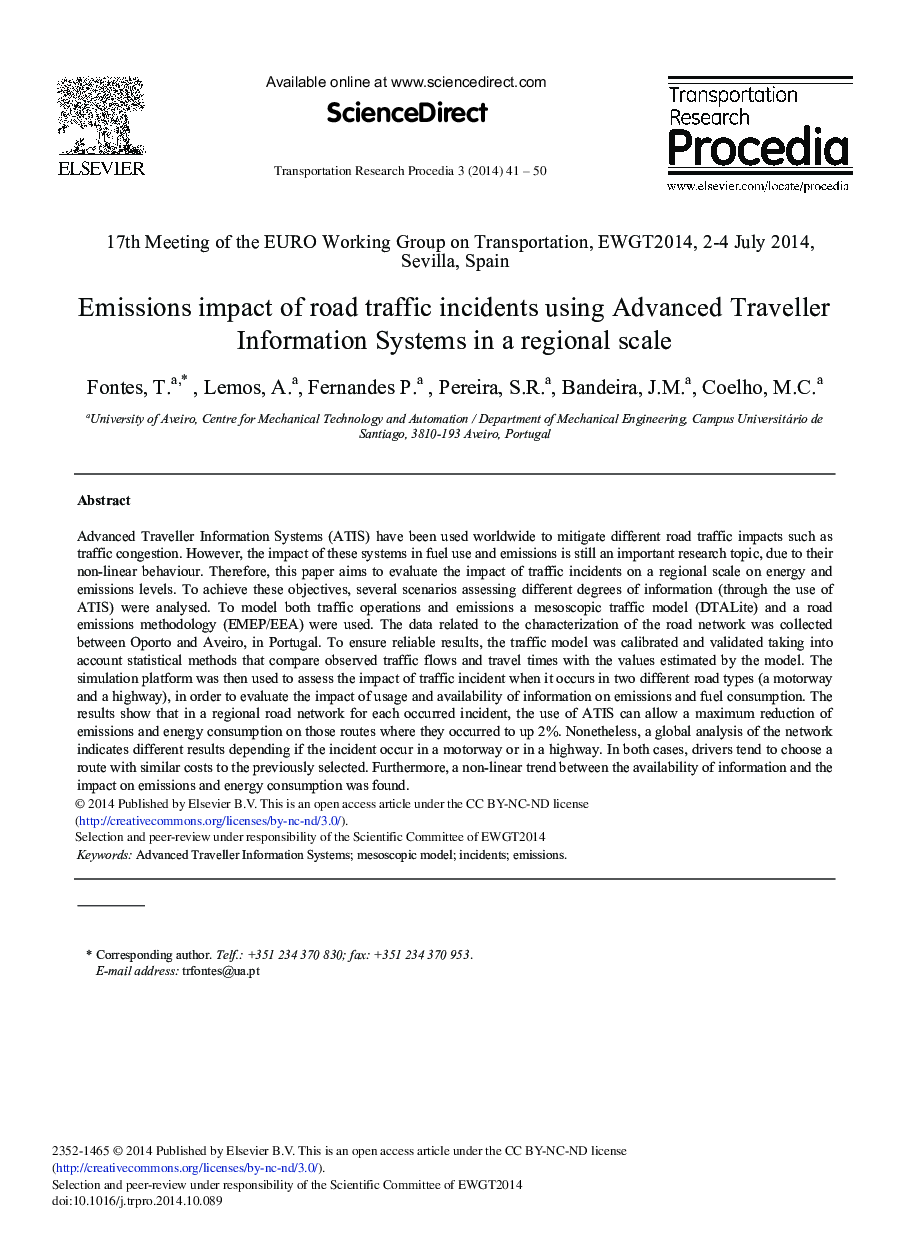| Article ID | Journal | Published Year | Pages | File Type |
|---|---|---|---|---|
| 1106381 | Transportation Research Procedia | 2014 | 10 Pages |
Advanced Traveller Information Systems (ATIS) have been used worldwide to mitigate different road traffic impacts such as traffic congestion. However, the impact of these systems in fuel use and emissions is still an important research topic, due to their non-linear behaviour. Therefore, this paper aims to evaluate the impact of traffic incidents on a regional scale on energy and emissions levels. To achieve these objectives, several scenarios assessing different degrees of information (through the use of ATIS) were analysed. To model both traffic operations and emissions a mesoscopic traffic model (DTALite) and a road emissions methodology (EMEP/EEA) were used. The data related to the characterization of the road network was collected between Oporto and Aveiro, in Portugal. To ensure reliable results, the traffic model was calibrated and validated taking into account statistical methods that compare observed traffic flows and travel times with the values estimated by the model. The simulation platform was then used to assess the impact of traffic incident when it occurs in two different road types (a motorway and a highway), in order to evaluate the impact of usage and availability of information on emissions and fuel consumption. The results show that in a regional road network for each occurred incident, the use of ATIS can allow a maximum reduction of emissions and energy consumption on those routes where they occurred to up 2%. Nonetheless, a global analysis of the network indicates different results depending if the incident occur in a motorway or in a highway. In both cases, drivers tend to choose a route with similar costs to the previously selected. Furthermore, a non-linear trend between the availability of information and the impact on emissions and energy consumption was found.
